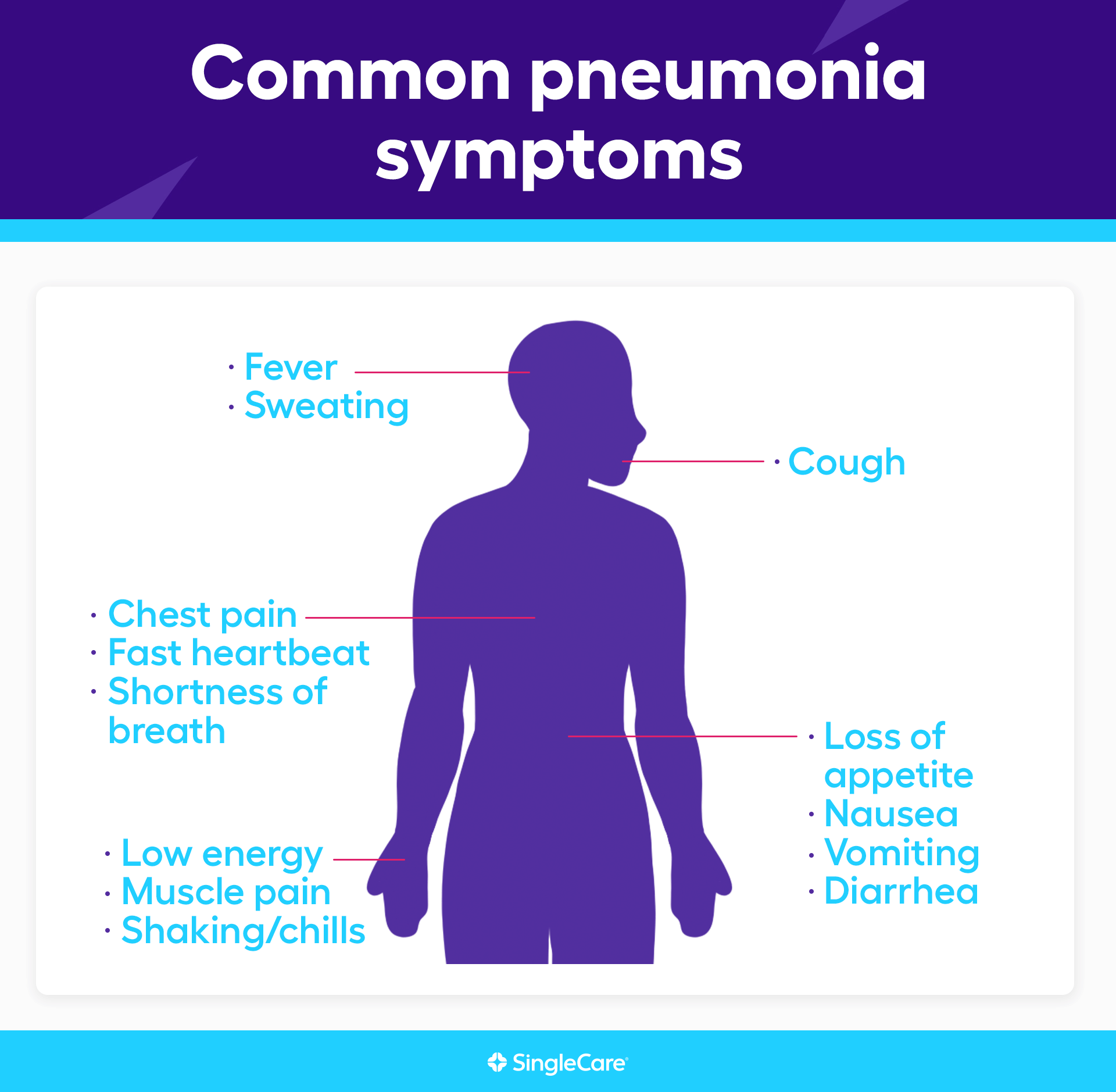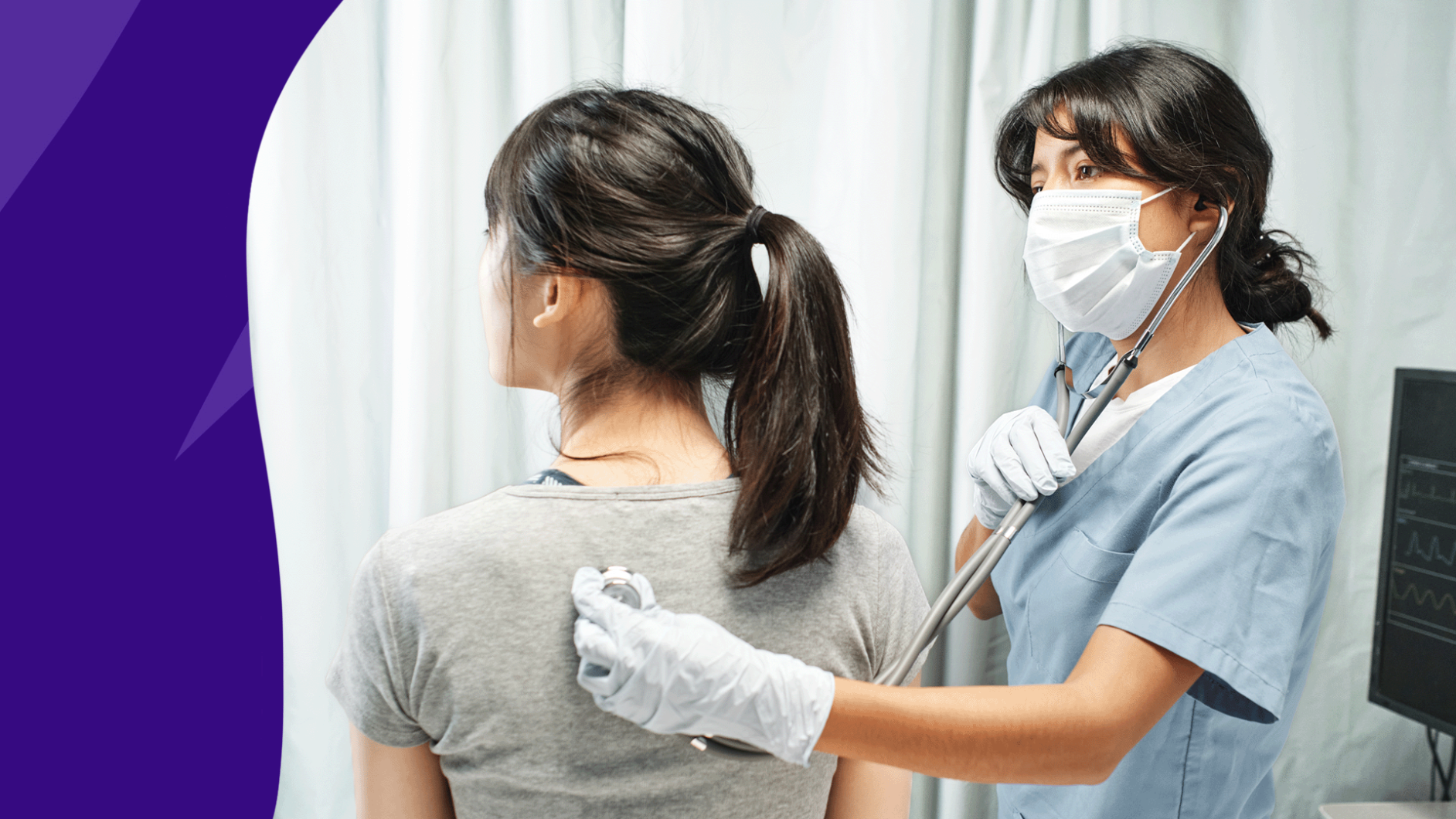Key takeaways
Pneumonia, often considered a cold-weather illness, can also spread in late summer and fall.
Bacterial pneumonia poses the greatest risk to those with weakened immune systems, recent surgery, or respiratory diseases.
High-risk groups for contracting pneumonia include people over 65, children under 5, those with chronic medical conditions, and smokers.
Despite being more common in winter, pneumonia can be contracted in summer through exposure to germs in places like spas, pools, and crowded indoor areas.
Most of us have suffered through a summer cold or two at some point. No big deal, right? But most people didn’t give much thought to more serious illnesses during the summer… until COVID-19 came along.
Now, many people wonder if they might be at risk for contracting other serious illnesses in the summer, too. One illness that many people don’t associate with summer, but you still can catch, is pneumonia. Pneumonia is an infection of one or both lungs in which the air sacs fill up with pus or fluid.
In fact, one type of bacterial pneumonia known as walking pneumonia is most commonly spread in late summer and fall.
It’s worth considering your chances of contracting this potentially serious illness during the warm summer months. Experts suggest that most people probably don’t need to hide out in their houses to avoid it, but some people are at greater risk than others—and they may want to be extra careful in some locations.
Regardless of your particular risk, you can still benefit from understanding what causes pneumonia and how to reduce the risk of developing it.
What is pneumonia?
Pneumonia is an infection of the lungs that is caused by bacteria, viruses, or fungi, according to the Centers for Disease Control and Prevention (CDC). When germs get down into your lungs, your immune system is alerted and sends immune cells to attack the invaders. This causes the alveoli, the tiny air sacs where your body exchanges oxygen and carbon dioxide when you breathe, to become inflamed. As a result, the air sacs may fill up with fluid and cause you to develop symptoms of pneumonia: coughing and difficulty breathing, among others.
Bacterial pneumonia
People who have recently undergone surgery, have weakened immune systems, or have respiratory disease or viral infection are at the greatest risk for developing bacterial pneumonia, according to the American Lung Association (ALA). Examples of bacterial pneumonia include pneumococcal pneumonia, “atypical pneumonia,” (which is not actually uncommon), and “walking pneumonia.”
Viral pneumonia
Viruses are responsible for about one-third of the cases of pneumonia, according to Johns Hopkins Medicine. The most common causes of viral pneumonia include viruses that affect the upper respiratory tract, such as influenza, respiratory syncytial virus (RSV), and COVID-19.
Fungal pneumonia
Certain fungi can cause pneumocystis pneumonia (PCP) in people with weakened immune systems.
What season is pneumonia more common?
Research suggests that pneumonia occurs more often in the wintertime. The cold, dry air of wintertime seems to be associated with higher rates of illnesses like pneumonia and the flu.
Winter is associated with higher rates of respiratory illnesses in general. When it’s cold and blustery outside, people spend more time indoors where it’s warm. And when people crowd together inside, they’re more likely to spread infections to one another. The problem is further complicated because cold, dry air also appears to weaken resistance, according to Johns Hopkins Medicine.
But that doesn’t mean you can’t get pneumonia in the summer. Germs spread regardless of the temperature.
“You can spread germs to others through direct contact via saliva or mucus,” notes Laura Purdy, MD, a board-certified family medicine physician who practices virtually in the U.S. “This can be from sneezing and coughing. This can happen any time of the year, including the summer.”
How do you get pneumonia in the summer?
Consider the places that you might venture to when the weather is warm. There are a few locations that might make your risk of contracting pneumonia more likely.
Spas and pools. Hot tubs, spas, and swimming pools can be risky spots for contracting Legionnaires’ Disease, a type of bacterial pneumonia that can range from mild to serious. It’s caused by Legionella bacteria that can grow in water systems and can be inhaled through tiny droplets.
“For most healthy people, if it caused an infection, it would just lead to cold symptoms,” says Sarah Park, MD, medical director at Karius, a company specializing in infectious disease diagnostic testing. “However, older people, smokers, and people with underlying medical issues (or who are immunocompromised or have lung problems) can develop pneumonia.”
Hotels and resorts. Leginonnaire’s disease has also been linked to some hotels with water management problems. Again, bacteria in the water is usually the culprit, which can grow in places like cooling towers, showers, hot tubs, decorative fountains, and other water features.
Museums and theaters. Air-conditioned entertainment can be just the ticket on a hot day. But spending time in tight proximity with someone who’s sniffing, sneezing, and coughing could be risky, especially if you’re already at increased risk. Keep your distance, and remember good hygiene tips, like not touching your face with your hands and washing your hands frequently.
RELATED: Is pneumonia contagious?
Who’s at risk of catching pneumonia in summer?
In general, there are four categories of people who are at higher risk for contracting or developing pneumonia—any time of year:
- People older than 65
- Children younger than 5
- People with ongoing or chronic medical conditions (such as chronic lung disease)
- Smokers
According to Dr. Park, immunocompromised people and others who cannot fight off infection effectively are among the most vulnerable. “The highest risk individuals have chronic lung issues, are older adults, or are very young infants,” she says.
Summertime pneumonia symptoms, diagnosis, and treatment
If you’re unaware that you can catch pneumonia in the summer, you might be tempted to dismiss pneumonia symptoms. Therefore, pay attention if you develop any of the following, which are common symptoms of pneumonia:
- Cough, especially with phlegm
- Chest pain when you cough
- Shortness of breath
- Fatigue
- Fever and chills
- Nausea, vomiting, or diarrhea

RELATED: Walking pneumonia symptoms
Older adults—that is, people 65 and older—sometimes become confused during the onset of pneumonia. Another symptom to watch out for in older adults and people with weakened immune systems is a lower-than-normal body temperature.
You should see a healthcare provider if you have a persistent cough, difficulty breathing, or a temperature that remains over 102 degrees Fahrenheit. People in high-risk categories should seek medical treatment right away as pneumonia can progress quickly in vulnerable people and become life-threatening.
Your doctor will review your medical history, perform a physical exam, and order blood tests and other diagnostic tests like a chest X-ray, a sputum culture, and others in order to make the diagnosis.
Treatment of pneumonia depends on the type. For instance, bacterial pneumonia requires antibiotics. Viral pneumonia is treated with antivirals. And those with pneumonia caused by fungus might be prescribed antifungal medication and may need additional treatment for the underlying immune condition.
RELATED: FDA approves Xenleta to treat bacterial pneumonia
How to prevent summertime pneumonia
Pneumonia can be mild—but it can also be life-threatening. Pneumonia is responsible for about 1.5 million emergency room visits in the U.S. annually, and more than 41,000 people die from pneumonia yearly. That’s why it’s important to lower your chances of contracting pneumonia, no matter the season.
Here are steps you can take to prevent pneumonia:
- Mind your health. In order to stay as healthy as possible, make sure you’re getting enough sleep, eating a nutrient-rich diet, taking all medications as prescribed, and seeing your healthcare provider for regular checkups.
- Wash your hands. Good hygiene, which includes handwashing (for a minimum of 20 seconds to kill germs), can help you avoid contracting an infection from bacteria or viruses.
- Don’t smoke or vape. When you smoke, your lungs can’t filter out and defend themselves (and the rest of your body) against germs.
- Address swallowing issues. If you have trouble swallowing, you may be more likely to accidentally get food, drinks, or saliva in your lungs, which could facilitate an infection.
- Don’t share drinks or food with other people.
- Beware of mold. Dr. Purdy says there are some cases when mold caused by periods of frequent rainfall has contributed to cases of pneumonia. “It’s crucial to keep indoor spaces dry and well-ventilated by using dehumidifiers or air conditioning systems as well as opening windows or using fans to circulate air,” she says.
- Get vaccinated. In addition to getting a flu shot each year, you should speak with your healthcare provider about the pneumococcal vaccine, which is designed to prevent bacterial pneumonia. Experts typically recommend the vaccine for people who are at high risk, which includes adults aged 65 or older, children under 2, people who smoke, and people with weakened immune systems or with chronic medical conditions such as chronic obstructive pulmonary disorder (COPD) or diabetes. According to the National Heart, Lung, and Blood Institute, people who are vaccinated and contract pneumonia tend to have milder infections, fewer serious complications, and a shorter disease course than people who aren’t.
Prevnar 13 vaccine coupons | Pneumovax 23 vaccine coupons
The bottom line
Ultimately, germs don’t care what the season is. Don’t assume you can’t get pneumonia just because the calendar says it’s summer. That’s especially true if you know you’re at elevated risk or come into contact with someone who is sick.
Embracing prevention strategies all year round will reduce your chances of getting pneumonia, whatever the season.
“Always remember to take care of yourself and listen to your body,” Dr. Purdy says. “Consult a doctor when needed and if you are feeling sick. These things you can do year-round.”
- Mycoplasma infection (walking pneumonia, atypical pneumonia), New York Department of Health (2024)
- About pneumonia, Centers for Disease Control and Prevention (2024)
- What causes pneumonia? American Lung Association (2025)
- What is walking pneumonia? American Lung Association (2025)
- Winter illness guide, John Hopkins Medicine
- Cold, dry air is associated with influenza and pneumonia mortality in Auckland, New Zealand, Influenza and Other Respiratory Viruses (2016)
- Legionellosis, World Health Organization (2022)
- How Legionella spreads, Centers for Disease Control and Prevention (2025)
- Risk factors for pneumonia, Centers for Disease Control and Prevention (2023)
- Pneumonia, John Hopkins Medicine
- Pneumonia, National Center for Health Statistics (2025)
- Pneumonococcal vaccine recommendations, Centers for Disease Control and Prevention (2024)
- Pneumonia prevention, National Heart, Lung & Blood Institute




